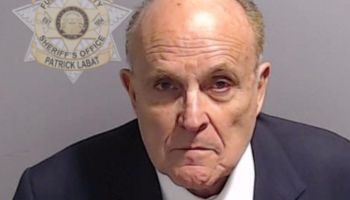Uganda — Voters in Uganda on Friday had to choose between extending their president’s 25-year grip on power or joining the anti-incumbent wave sweeping Africa and the Middle East and vote Yoweri Museveni out of office.
Opposition threats of street protests have raised the stakes in the vote — just the second multiparty election to be held in Uganda in 30 years. Though most observers expect Museveni to win another term, the president faces seven challengers.
“I am voting for change. We need change,” said Stephen Asiimwe, 40, a market vendor. “I am not a fool to let someone rule for 30 years.”
RELATED:
Museveni’s stiffest competition comes from a former ally and personal physician, 54-year-old Kizza Besigye.
Besigye plans to release his own tally of results and is threatening street protests if the results are out of line with his backers’ expectations. Besigye insists that 25 years after Museveni seized power as the head of a rebel group Uganda is ready for an Egypt-style popular revolt.
Museveni this week promised to jail anyone who tries to spark unrest. He said that no one can use extraconstitutional means to take power. “That is out of the question,” he said.
Polling stations were scheduled to open at 7 a.m. Ugandan time, though materials were delivered late to many stations in the capital, upsetting voters.
“We have been waiting for hours, but they are so delayed,” said voter Robert Mwanja, a 35-year-old shopkeeper voting in central Kampala. “The officials are so confused. They don’t know what they are doing.”
Police had to calm angry voters in some polling centers. One polling official, Timothy Walga, said voters had threatened violence against workers because of the long delay.
About 14 million people are registered to vote for the presidential and parliamentary races. Many are backing Museveni, who is vague about his age and says he is 66 or 67, for a fourth term.
“Let me give him one more chance and see what he can do,” said Edward Bbaale, 40, a garbage collector.
Security has been heightened around Kampala and at the nation’s nearly 24,000 polling stations.
Beyond potential election violence, police and embassies warned of possible terrorist attacks. Last July twin suicide bombings in Kampala claimed by the Somali militant group al-Shabab killed at least 76 people.
Police spokeswoman Judith Nabakooba said Thursday night the situation in the country had been generally calm with only isolated disturbances.
Besigye, the top challenger, has already called the election “fundamentally flawed,” pointing to the incumbent’s control of the electoral commission and the failure to give new voters identity cards as proof that the president will rig the vote.
Besigye, the candidate for the Inter-Party Cooperation coalition, lost to Museveni in 2001 and 2006, and failed to get the results overturned in court, despite proof of widespread intimidation.
While previous election campaigns were marred by violence against opposition candidates, the run-up to this election has been mostly free of intimidation.
This time, analysts say, Museveni has allowed the opposition to campaign more or less freely, potentially robbing them of a large sympathy-vote some received in the past. Observers say Museveni has also used government funds on his campaign and to bribe voters. Museveni denies the allegations.
Bbaale, the garbage collector, said that despite living conditions remaining stagnant, he supports Museveni for the peace and stability he has brought the country.
“I pray to God that the one that loses the election accepts defeat peacefully,” he said.















